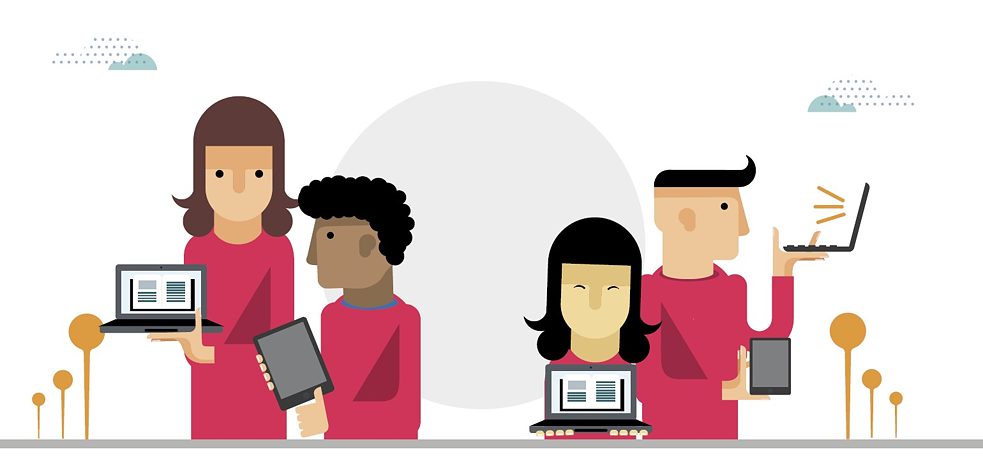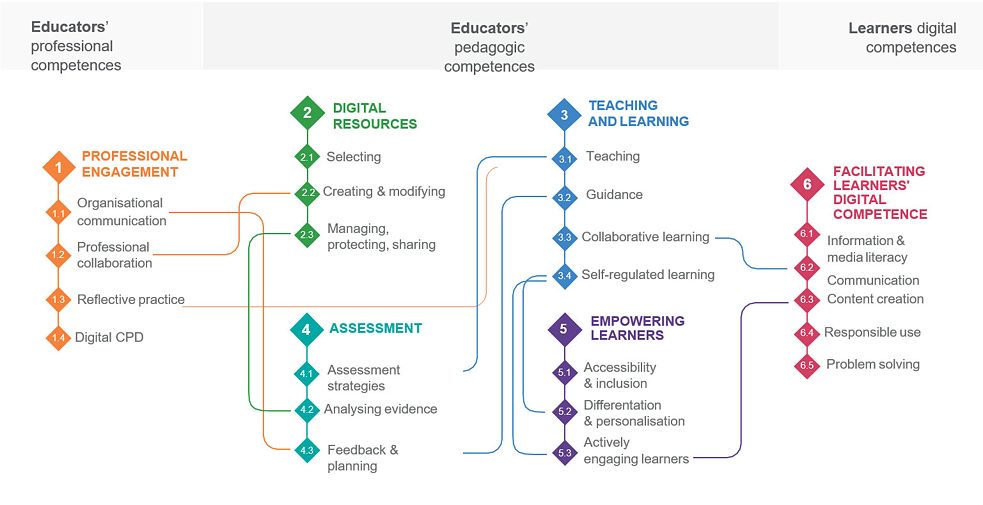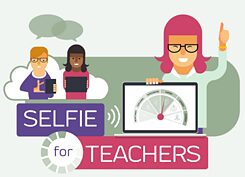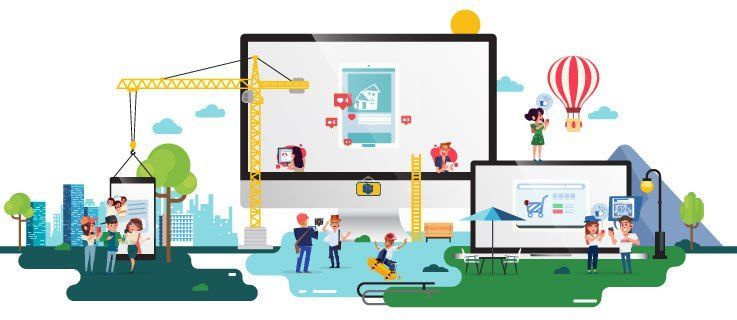Digital competence
Which digital competences do educators require today?

One thing is certain: we live in a world in which digital media play a major role. We communicate, obtain information, shop and play on the Internet and via social media. Digital media are indispensable in the working world, but their use in schools is still a matter of some controversy.
By Sabine Rotberg
The positive side effect of the school closures was that education authorities, schools and teachers had to find new ways of communicating and interacting with their students. Few teachers were prepared for this, most had to acquire new skills very quickly. And even if schools are now reopening for face-to-face teaching, this should not be a return to the "good old days", but rather the numerous possibilities of digital teaching should be used.
Digital pact for schools
Thanks to the five billion Euro “Digital Pact for Schools” launched by the German parliament, schools in Germany are now better equipped with technology. Classrooms were provided with WiFi, new laptops and smartboards. Online platforms have fostered “collaborative learning”.In 2022, the federal government supplemented the Digital Pact with three additional agreements that provide a further 1.5 billion euros in investment aid. These are to be used for mobile devices as well as the promotion of the training and financing of IT administrators in schools.
However, as the Federal Ministry of Education and Research is well aware: “No medium alone makes for a good education.” So once again it will be up to educators, who “will [have to] be well qualified to use digital media and teach digital competences.”
If you enter the term “digital competence educators” into a search engine, you will be shown an unmanageable amount of results. So where should we begin?
EUROPEAN FRAMEWORK FOR THE DIGITAL COMPETENCE OF EDUCATORs
In 2017, the European Commission published the “European Framework for the Digital Competence of Educators” (DigCompEdu). It exist in a variety of European languages and has been translated into German by the Goethe-Institut.THE AREAS OF COMPETENCE DEFINED BY DIGCOMPEDU
DigCompEdu distinguishes between three areas of digital competence for teachers:- educators’ professional competences
- educators’ pedagogic competences
- learners’ competences.
The DigCompEdu self-assessment matrix is designed to enable educators to assess their degree of competence and better identify those areas in which they should further develop their competences.
To facilitate the self-assessment process, motivating role descriptors are proposed for the six different competence levels; these are based on the six proficiency levels (A1/A2/B1/B2/C1/C2) of the Common European Framework of Reference for Languages (GER):
Newcomers (A1) have had very little contact with digital tools and need guidance to expand their repertoire.
Explorers (A2) have started using digital tools without, however, following a comprehensive or consistent approach. Explorers need insight and inspiration to expand their competences.
Integrators (B1) use and experiment with digital tools for a range of purposes, trying to understand which digital strategies work best in which contexts.
Experts (B2) use a range of digital tools confidently, creatively and critically to enhance their professional activities. They continuously expand their repertoire of practices.
Leaders (C1) rely on a broad repertoire of flexible, comprehensive and effective digital strategies. They are a source of inspiration for others.
Pioneers (C2) question the adequacy of contemporary digital and pedagogical practices, of which they themselves are experts. They lead innovation and are a role model for younger teachers.
SELF-ASSESSMENT TOOLS
For quick self-assessment, there is the free self-test SELFIEforTEACHERS based on the DigCompEdu. SELFIEforTEACHERS is an online tool that helps primary and secondary school teachers learn more about their digital skills and identify areas where they can develop. It is available in all official European languages.For schools and other institutions, a tool has just been made available that allows the use of digital technologies in the classroom and for teaching purposes to be analysed: SELFIE = Self-reflection on Effective Learning by Fostering the use of Innovative Educational Technologies.
SELFIE is a free, user-friendly and adaptable tool that helps schools assess their current level in terms of learning in the digital age. SELFIE gathers – anonymously – the views of students, teachers and school leaders on how technology is used in their school.
SERVICES FOR German as a Foreign Language TEACHERS AT SCHOOLS ABROAD
How does the Goethe-Institut promote the digital competences of teachers of German abroad? Here is an example:EDDU
“Erfolgreich digital Deutsch unterrichten” (i.e. Successfully teaching German digitally) – The EDDU project in the Southeast Asia region presents lesson ideas for how teachers can easily and successfully use digital media in their lessons. Teachers can find lessons that match their school’s level of technical equipment, and are provided with all the materials that they will need. EDDU offers teachers concrete lesson ideas that incorporate chat apps, social media, videos, photos and other digital tools relating to the subjects that come up in their textbooks and that interest their students.



